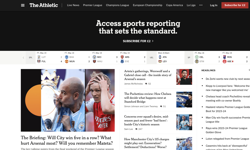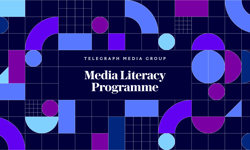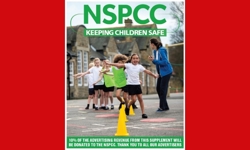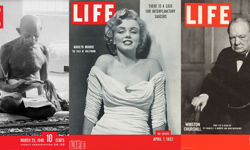When Lord Justice Leveson opened his inquiry into the culture, practices and ethics of the press last November, he made a comment that showed he meant business.
He remarked: “I want this inquiry to mean something. I am very concerned that it should not simply form a footnote in some professor of journalism’s analysis of the history of the 21st century while it gathers dust.”
One well connected media figure commented: “Leveson wants to do something, that’s the really frightening thing.”
The British press seems to have been drinking up endlessly in the famed ‘Last Chance Saloon’ as Royal Commissions on the Press and the Calcutt Report on Press Self-Regulation have come and gone.
Given the massive coverage the Inquiry has had, with high profile celebrities like Hugh Grant, Steve Coogan and Sienna Miller as well as press victims such as Gerry and Kate McCann and Chris Jefferies giving evidence, it is hard to believe the findings of the Inquiry will end up gathering dust.
Following the phone hacking scandal and current police investigations into the press, there is little room for complacency.
Self regulation needs beefing up
There seems to be a wide acceptance among those giving evidence to Leveson from the newspaper industry that while no-one wants statutory control of the press, self-regulation needs to be beefed up and the Press Complaints Commission replaced.
There is general agreement that the PCC failed over phone hacking at the News of the World and any new press body should have the power to investigate allegations of wrongdoing by a newspaper and impose sanctions – possibly large fines – against those titles found guilty.
It is also widely agreed that a new press regulatory body should be more independent of the industry, not have serving editors sitting in judgment on their peers, and have tough sanctions against any major newspapers or groups of titles that refuse to be part of self-regulation.
There also seems to be an acceptance that corrections should be more prominent and not buried far back in newspapers.
Lord Hunt, the new chairman of the PCC told the Leveson Inquiry that a new regulatory body should have real powers to investigate allegations such as phone hacking, illegal computer hacking or general press intrusion by reporters or paparazzi.
It would also have the power to impose fines and award compensation to victims of the press. He suggested the new body would be far more robust than the PCC and be independent of influence by present editors.
"We do urgently need a totally new body with substantially increased powers to audit, enforce compliance with the code [of practice], to require access to documents, to summon witnesses when necessary and also to impose fines, all backed by commercial contract", he said.
There have been some indications that Richard Desmond's Northern & Shell group, which pulled out of the PCC last year, would accept a new press regulatory regime under Hunt.
PressBof chairman Lord Guy Black has backed a “fining element” to be introduced in a new self-regulatory regime for the press.
He told the Inquiry the phone-hacking scandal had “laid bare for the first time the very real lack of powers that exist within the self-regulatory system to conduct investigations".
Daily Mail editor Paul Dacre accepted there might need to be some statutory power to ensure that newspaper groups like Richard Desmond’s are compelled to accept the jurisdiction of a press regulatory body.
There has been talk of “arms-length” statutory controls to underpin a voluntary press regulation to ensure that it works, although some in the industry still oppose any kind of “quasi-statutory” control.
There is also some support for the appointment of a press ombudsman with powers to investigate press wrongdoing. In Ireland, under a new press regulatory system introduced four years ago, the ombudsman works with a press council that includes experienced journalists and industry figures.
Licensing proposal
Dacre also proposed a radical shake-up in the accreditation of journalists with a new press body controlling the issuing of press cards - and having powers to withdraw the cards from anyone found guilty of malpractice in the same way the General Medical Council can have doctors “struck off”.
He said: “By transforming it into an essential kite mark for ethical and proper journalism … the public at large would know journalists carrying such cards are bona fide operators, committed to a set of standards and a body to whom complaints can be made.”
Dacre proposed that without the new press card, journalists would not have access to key Government briefings or official press conferences held by ministries, councils or the police, or to royal, sporting or celebrity events.
However, his plan soon came under fire from those who said it was tantamount to the “licensing” of journalists as favoured by authoritarian and repressive regimes.
Professor Steven Barnett, of Westminster University, claimed it was wrong to put the blame on journalists for poor press standards. "The culture and ideology is imposed from above. Look at the Mail and the Express. The journalists are told 'go and get me this story and fit it into this template'."
NUJ general secretary Michelle Stanistreet commented: “This would lead to the licensing of journalists through the back door and undermine press freedom. This is yet another example of how an editor – a very high-profile influential member of the industry – is trying to pin the blame on individual journalists.”
The NUJ, in its evidence to Leveson, has argued strongly for a “conscience clause” to be inserted into journalists’ contracts which would protect them from being sacked if they refused to do unethical work which breached the union’s Code of Conduct.
The union claims that the phone hacking scandal was a result of a bullying culture at News International where the NUJ has not been recognised since the move from Fleet Street to Wapping in 1986.
When Guardian editor-in-chief Alan Rusbridger expressed some support for a conscience clause, Lord Justice Leveson intervened to say he thought it would be of "limited value".
There is a belief that although a conscience clause might protect a journalist in law, it would lead to them being ostracised or victimised in the workplace.
Ex-Daily Star journalist Richard Peppiatt suggested that a reporter who invoked a conscience clause would find themselves on 24-hour door stepping duty.
Rusbridger in his evidence to Leveson said of the newspaper industry: "We've been under regulated and over legislated."
Some in the industry are hoping there may be a trade off between tougher regulation and reform of the libel laws and other legislation seen to restrict the press.
Bob Satchwell, executive director of the Society of Editors, has called for a specific protection for “freedom of the media” along the lines of the First Amendment in the US.
Culture secretary Jeremy Hunt says more agreement than expected has emerged for a tougher form of newspaper regulation.
All that dirty linen
While there may be a growing consensus within the newspaper industry for a tougher regulatory body, there is concern about the battering the Inquiry is giving to the image of journalism.
There were complaints that by highlighting day after day examples of where newspapers have gone wrong, the Inquiry has promoted a very negative view of the press.
Former Daily Mirror editor Piers Morgan complained at the end of his evidence: “It's almost like a rock star having an album brought out from his back catalogue with all his worst-ever hits.”
Daily Mail editor Paul Dacre told Lord Justice Leveson that the Inquiry was giving the public a "very bleak and one-sided view of the press".
A backdrop to Leveson is the continuing fall in circulations and ad revenues facing newspapers, leaving some to speculate about how many newspapers will be left by the time the Inquiry produces its recommendations.
Trinity Mirror chief executive Sly Bailey told Leveson about the bleak economic outlook for the regional press: "At the peak, we had around £150m recruitment advertising supporting our titles, and last year we had less than £20m."
Michael Wolff, the US media commentator and Rupert Murdoch biographer, has predicted: "Leveson reform could well produce US-style newspapers in UK. Of course US-style newspapers have all gone (or will shortly go) bankrupt."
Outside Leveson, the national press is also reeling at the arrest of Sun journalists over allegations of payments to police and public officials.
The arrests have been condemned by the NUJ as a “witch-hunt” with journalists being “shopped” to the police by their own publisher.
Some argue that the police action will have a bigger impact than Leveson. The Sun’s associate editor Trevor Kavanagh warned: “We have three separate police inquiries - Elveden, Weeting and Tuleta.
"There is a Parliamentary inquiry and of course the free-ranging Leveson Inquiry into newspaper practices… Before it is too late, should we not be asking where all this is likely to lead? Will we have a better press?
“Or a press that has been bullied by politicians into delivering what they, not the readers, think fit?"
Some believe Leveson will create better newspapers and is the best chance in a generation to clean-up parts of the national press.
Journalism lecturer Brian Cathcart, a founder of the Hacked Off campaign, says: "The bathwater of unethical and illegal practices in journalism needs to be drained, and the Leveson process exists to do that. There is no reason to suppose that the baby of free expression will be washed away in the process.”
One comfort for journalists and publishers horrified at seeing so much of the newspaper industry’s dirty linen being washed in public is that the next modules of the Leveson Inquiry see politicians and the police put under the spotlight about their relationships with the press.










